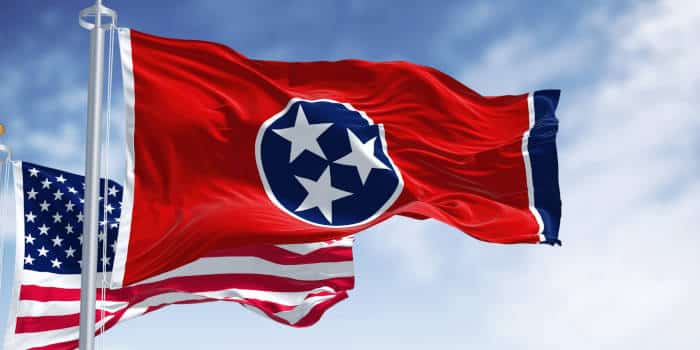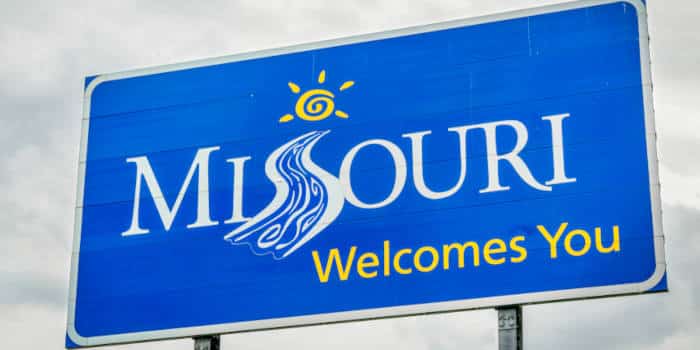- Casino
- By State
- Alabama
- Alaska
- Arizona
- Arkansas
- California
- Colorado
- Connecticut
- Delaware
- Georgia
- Florida
- Hawaii
- Idaho
- Illinois
- Indiana
- Iowa
- Kansas
- Kentucky
- Louisiana
- Maine
- Massachusetts
- Maryland
- Michigan
- Minnesota
- Mississippi
- Missouri
- Montana
- Nebraska
- Nevada
- New Hampshire
- New Jersey
- New Mexico
- New York
- North Carolina
- North Dakota
- Ohio
- Oklahoma
- Oregon
- Pennsylvania
- Rhode Island
- South Carolina
- South Dakota
- Tennessee
- Texas
- Utah
- Vermont
- Virginia
- Washington
- West Virginia
- Wisconsin
- Wyoming
- By State
- Slots
- Poker
- Sports
- Esports
US Legal Sports Betting Sector Generates More than $5bn in Taxes
Since the start of the expansion of sports betting in 2018, states continue to benefit from tax revenue proceeds which by now have surpassed $5 billion

The expansion of sports betting across the United States started back in 2018. At the time, the US Supreme Court ruled the Professional and Amateur Sports Protection Act (PASPA), a law that restricted betting to only a few states, unconstitutional. Since then, for five years, the legalization of betting has been rapidly expanding across the country. Currently, 38 states and DC currently offer some form of legal wagering, while efforts toward legalization continue in several states.
A major benefit of legal betting is that sports fans and bettors alike can engage in a regulated form of the activity, without fears about fraud, scams or other issues usually related to unlicensed or offshore operators. On the other hand, the legal betting sector pays taxes that contribute toward vital programs in different states. Now, a new report reveals that statewide taxes generated from sports betting have surpassed $5 billion since the expansion of the activity started in 2018.
As announced by Sports Handle, the total tax revenue generated from sports betting passed the mind-blowing $5 billion recently. The latest achievement was hit earlier than anticipated and it was recorded in less than six years since the statewide expansion of legal wagering. With more states legalizing wagering on sports and the activity gaining more popularity, 2023 was a record year for betting operators. More than 40% of the $5 billion in tax revenue, or some $2.15 billion was generated last year alone.
Recently, the largest online sports betting operators in the US joined forces for the creation of the Responsible Online Gaming Association (ROGA), an initiative that seeks to fight off problem gambling. The brands that supported the initiative include FanDuel, DraftKings, bet365, BetMGM, Fanatics Betting & Gaming, Penn Entertainment and Hard Rock Digital.
New York, Pennsylvania and New Jersey Post the Highest Betting Tax Revenue
New York launched its mobile betting market in January 2022. Since then, the state has broken records set in much more mature markets and positioned itself as the single state with the highest betting market value. Last year, New York collected $862.6 million in taxes based on its 51% tax on adjusted gross revenue (AGR) and 10% tax on retail AGR. Since the launch of legal betting in New York, through February this year, the activity has raised a whopping $1.74 billion.
The state with the second-highest total betting tax is Pennsylvania. Currently, operators in The Keystone State are subject to a 36% tax on AGR. In 2023, the state collected $155.9 million in taxes, while the overall tax generated by betting through February is nearly $538 million. Lawmakers in New Jersey are currently eyeing a tax hike that may significantly increase the tax rate for online gambling.
The state with the third-highest total taxes in the US is New Jersey. Betting has been legal in the Garden State since 2018 and it is among the most mature markets in the country. Betting operators in New Jersey are subject to a 14.25% tax on online/mobile betting revenue and 9.75% on retail sports betting revenue. Since the launch of legal betting, through this February, the activity has generated $457 million in tax revenue. Last year alone, the taxes from sports betting hit $128.9 million.
Related Topics:
Jerome brings a wealth of journalistic experience within the iGaming sector. His interest in the industry began after graduating from college, where he regularly participated in local poker tournaments. This exposure led him to the growing popularity of online poker and casino rooms. Jerome now channels all the knowledge he's accrued to fuel his passion for journalism, providing our team with the latest scoops online.
Must Read
More Articles







Poker
July 17, 2025
Michael Mizrachi Takes WSOP Main Event, Wins $10M

Industry
July 17, 2025
New Jersey Gaming Posts $581.6M in Revenue for June

Sports
July 17, 2025
Canelo Alvarez Bets $500K on Usyk Defeating Dubois

Industry
July 16, 2025
Iowa Regulator Slams FanDuel with $125K in Fines

Casino
July 16, 2025
Strip Casinos End Cross-Property Poker Chip Cash-Ins

Casino
July 16, 2025
WWE Is Coming to Fanatics Online Casinos in the US











